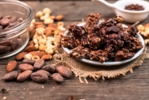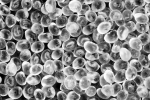Joint research and development project improves herbicide treatment with high-performance sensors
Optical technologies & artificial intelligence: University of Hohenheim, Bosch, Amazonen-Werke, and BASF Digital Farming conducts research into high-performance sensors for smart herbicide treatment
https://www.biooekonomie-bw.de/en/articles/pm/joint-research-and-development-project-improves-herbicide-treatment-high-performance-sensors



